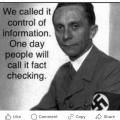Title: The Role of AIPAC in the TikTok ControversyIntroduction
The ongoing scrutiny of TikTok in the United States has largely been framed as a national security issue tied to concerns over Chinese influence. However, a deeper analysis suggests that political lobbying organizations, including AIPAC (the American Israel Public Affairs Committee), may also be playing a role in shaping the narrative and legislative actions against the platform. This report examines the potential motivations behind AIPAC’s involvement, the broader implications of its influence, and supporting evidence of its role in the discourse surrounding TikTok.1. Background on TikTok and U.S. Concerns
TikTok, owned by the Chinese company ByteDance, has faced repeated scrutiny from U.S. lawmakers over data privacy, content moderation, and national security risks. Previous administrations and legislative bodies have pushed for bans or forced divestitures of TikTok’s U.S. operations, citing concerns that the Chinese government could access user data or influence public discourse.2. AIPAC’s Influence in U.S. Politics
AIPAC is one of the most powerful lobbying organizations in the United States, primarily focusing on strengthening U.S.-Israel relations. However, its influence extends into various aspects of U.S. policy, including foreign relations, technology regulation, and media influence. AIPAC has historically worked to shape narratives on issues critical to its interests, often leveraging bipartisan political support to advance legislation aligned with its agenda.3. Potential Motivations for AIPAC’s Involvement in the TikTok Debate
While AIPAC’s direct role in the TikTok controversy has not been widely reported, several potential motivations could explain its interest:• Media Control and Influence: TikTok represents a decentralized platform where narratives outside of traditional media influence thrive. AIPAC, like other political organizations, may have concerns about unregulated discourse affecting public opinion on U.S.-Israel relations and Middle East policies.• Geopolitical Strategy: Limiting TikTok’s influence could align with broader geopolitical objectives, particularly in controlling digital narratives that impact U.S. foreign policy.• Alignment with Broader Lobbying Interests: AIPAC’s lobbying efforts often intersect with those of other powerful political and corporate entities that advocate for increased control over digital platforms and social media.4. Evidence of AIPAC’s Influence in the TikTok Debate
Several indicators suggest that lobbying groups, including AIPAC, may be exerting pressure in the discussions surrounding TikTok:• Legislative Support and Lobbying Ties: Lawmakers heavily backed by AIPAC have been at the forefront of pushing anti-TikTok legislation. Examining campaign donations and policy alignments can provide insights into their motivations.• Media Narratives and Op-Eds: Pro-Israel advocacy groups and aligned think tanks have been influential in shaping public discourse on technology regulation, often emphasizing security concerns that could align with AIPAC’s strategic interests.• Connections to Broader Censorship Efforts: Efforts to regulate or control digital platforms often intersect with lobbying efforts aimed at influencing public discourse on U.S. foreign policy.5. Implications and Conclusion
If AIPAC is indeed playing a role in the push against TikTok, it would highlight the extent to which political lobbying organizations shape U.S. tech policy beyond the commonly cited national security concerns. Understanding these dynamics is critical for assessing the true motivations behind efforts to regulate digital platforms and the broader implications for free speech and media control in the United States.Further investigation into financial contributions, legislative sponsors, and lobbying records may provide additional clarity on AIPAC’s role in the TikTok controversy. This issue underscores the need for transparency in policymaking and a critical examination of the forces shaping digital media regulation in the U.S.
In Album: Robert Johnson's Timeline Photos
Dimension:
1170 x 1939
File Size:
279.44 Kb
Be the first person to like this.

Nigger
Jews and communists are one in the same.






